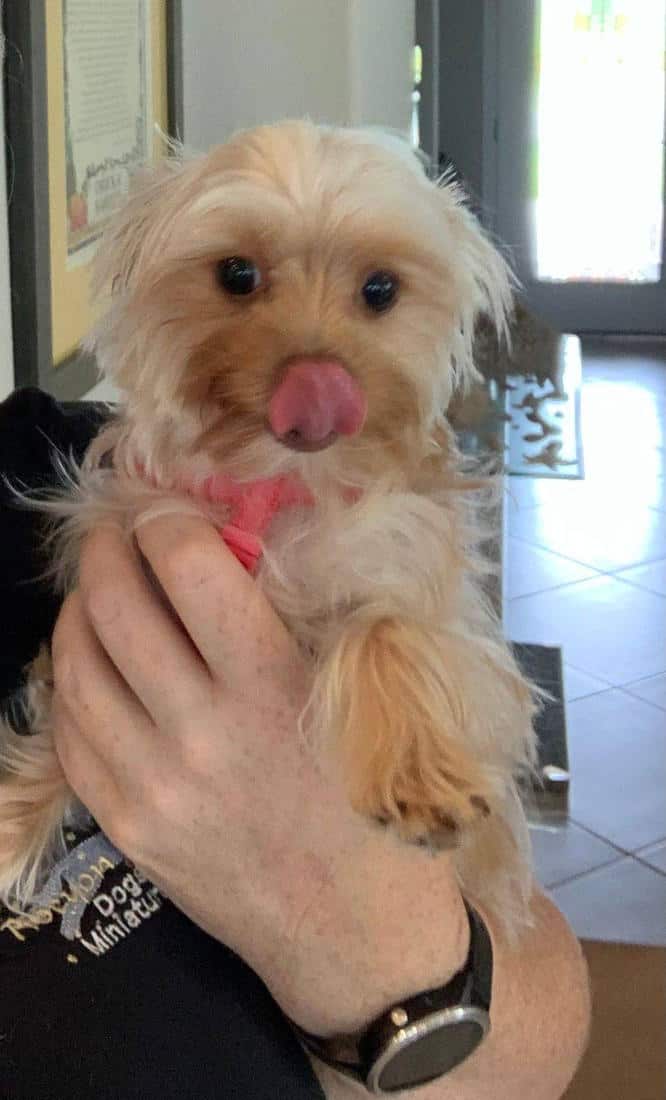4 Marker Words – WHAT are they and What are THEY?
When working with my dogs, I use 4 marker words – a Terminal Marker, a Neutral Terminal Marker, a Duration Marker, or a Non-Reward Marker. A “Marker Word” is a word or signal that let my dogs know if they have been successful or not as they are learning a skill. In other words, a marker word gives my dog specific feedback about the behaviors they are offering during training sessions. A Marker Word tells my dog: a) if they did the behavior correctly, b) they’re on the right track, or c) need to try again. Both Terminal Markers and Neutral Terminal Markers tell my dog that they have been successful.
A Terminal Marker tells my dog that they have been successful and that they will be receiving a reward. I use “yes” as my Terminal Marker. A Neutral Terminal Marker tells my dog that they have been successful but they will not be receiving a reward. I use “all done” or “free” as my Neutral Terminal Marker. So you may be wondering, why and when would I use a Terminal Marker versus a Neutral Terminal Marker. I often use a Neutral Terminal Marker when letting my dogs go into my backyard. Before letting my dogs go out into the back yard, I’ll cue them to “sit.” Once they are sitting, I’ll cue them to “wait” and then open the door. If my dog holds their “sit,” I’ll say “all done.” This gives my dog permission to go out in the yard and have a good time. If I were to say, “yes”, I’d have to give my dog a reward. However, since going into the yard is something they enjoy, that becomes the reward for successful “waiting” at the door. The clearer I can be about cause and effect, the easier it is for my dog to understand when they are earning a reward which means, in turn, that they are less frustrated. The Duration Marker also helps prevent frustration.
The word “good” is my Duration Marker and it helps prevent frustration because it gives my dog feedback. “Good” lets my dog know that they are offering the correct behavior and they should continue to offer the behavior until they are released (with the Terminal Marker). For example, when I cue my dog to “sit,” they should sit until I release them. I can tell them “good” to let them know they are doing the behavior correctly but they’re not quite done yet. A Duration Marker also allows me to give feedback without repeating the cue. So I can cue my dog to “sit” and use the word “good” to support them until I am ready to release them. When I’m working with a dog, you won’t hear me repeating “sit” or “good sit” or “stay” (why I sometimes only cue “sit” and other times add a “stay” is a whole other blog), or saying, “good sit.” You’ll only hear me say “good,” until I release them. So far I have a word that tells my dog they did it right and they’re getting a reward; they did it right, and are now free to go entertain themselves, and, finally, a word that says “keep going, we’re almost done.” But what do I do when my dog offers a behavior but it isn’t the correct one, how do I let them know? I use a Non-Reward Marker.
A Non-Reward Marker (NRM) does just that, it tells the dog that they’re not getting a reward. A NRM is NOT a punishment nor does it indicate a punishment is coming. It’s simply a word or signal that allows me to tell my dog that they haven’t been successful and that they should try again. For example, if I have successfully shaped a “left paw” and a “right paw” and I ask my dog to offer me their left paw, and they offer me their right paw, I’ll say “nope,” reset them, and then cue “left paw” again. This “nope” lets my dog know that wasn’t the behavior I was cueing AND that they should “try again.” If you’re wondering what happens when my dog isn’t successful three times in a row, that will be covered in a different blog, but suffice it to say that our training session goes in a different direction. And yes, I meant “our” training session and not his or her training session. I am not concerned that a NRM will frustrate my dog or have any other negative consequences (for example shutting down) because my Non-Reward Marker is a promise to my dog that we will try the skill again, together, working as a team, until we are successful.
Marker words give my dogs immediate and clear feedback. This, in turn, makes our training sessions more effective.
